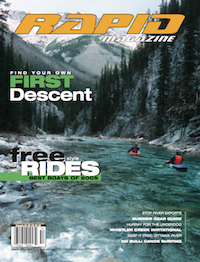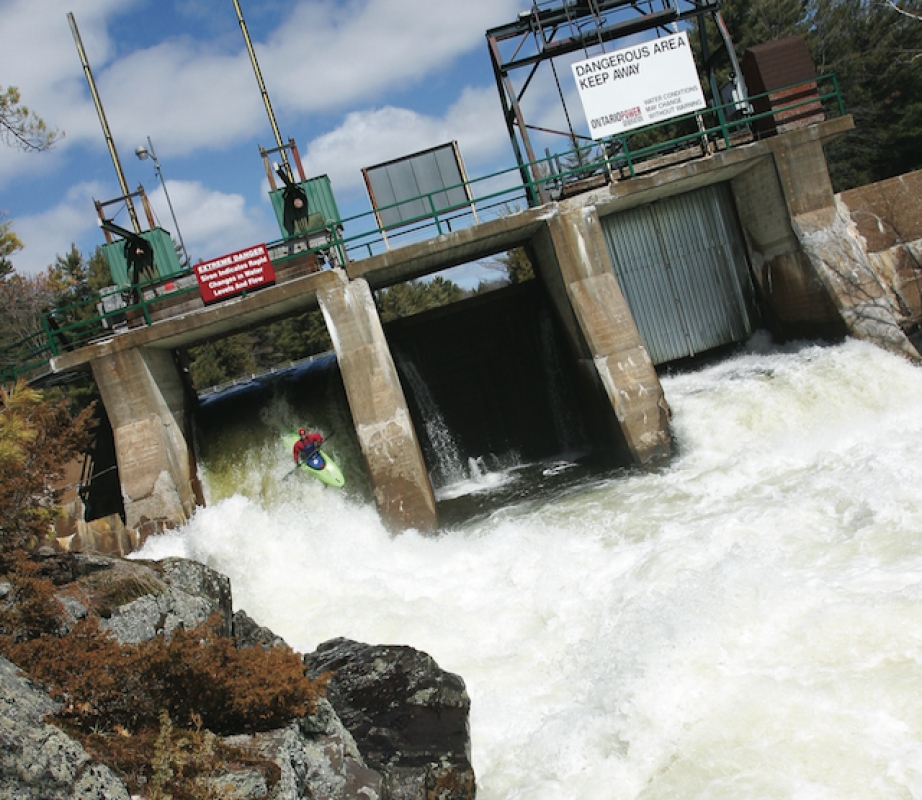A friend of mine calls them “The dumbs”. These are the things you do, dumb things, that at the time seem reasonable but eventually go so wrong that you can’t believe you did them in the first place.
It’s a condition that has escaped serious medical research but is most commonly found in males aged 18–35. An example of the dumbs is driving a Hummer into a hood-deep wall of snow, spending two hours digging it out with an avalanche shovel, and then backing up to try it again, getting myself only six feet further and much more stuck.
Another example is reaching over my handlebars to pull leaves out of my front brakes while riding my mountain bike on a rough trail.
Sometimes you get lucky and escape the consequences of the dumbs. Other times the consequences are immediately obvious, like when I reached for that leaf and got my fingers caught in the spokes, stopping the wheels with my weight forward and sending me screaming over the handlebars. But the worst cases of the dumbs happen when you don’t even realize what you’ve done, until later.
When Linda Halliday called a few weeks ago she explained she was bewildered and very disappointed, but by the tone of her voice I could tell she was actually pissed off. She’d just picked up the early summer issue of Rapid [online V7 I2] which fell open to the feature story, “Code Name Rubber Chicken: A Calculated Assault on Cottage Country Creeks” in which there appeared a photo of a paddler running a hydro control gate at Trethewey Falls.
The photo was taken more than a year ago in perfect spring light just as the boat was dropping through the dam on the curtain of water. It was all framed by the red brick structure and “Extreme Danger” signs. Linda, however, doesn’t think it is such a great shot. She’s a public affairs officer for Ontario Power Generation (OPG), the company that owns the dam and posted the signs.
You need a few more background details here to grasp the depth of this case of the dumbs.
Linda had my phone number handy because that morning I’d emailed her a sponsorship proposal for Palmer Fest, a whitewater canoe and kayak festival I was organizing. I had asked OPG to sponsor the event specifying that their sponsorship money would be used to further their “Stay clear, stay safe” dam safety public education campaign. In fact, I was quite proud of this partnership. I believe it makes perfect sense to work co-operatively with the people who manage the flows of the rivers we paddle. Until Linda’s call, I hadn’t made the connection with the previous year’s photograph.
Being anywhere near (to say nothing of actually running) a dam is exactly what Linda’s dam education campaign is supposed to discourage. The longer Linda and I talked, the more I realized OPG’s commitment to dam safety and the more I realized we should not have printed the photo.
Rapid would never run a photo of a paddler in whitewater without a helmet, nor would we illustrate the combination of alcohol and boating in any way. For the same reasons a photo of a paddler dropping a dam should never have been printed in that article.
Our sport doesn’t have a written code of conduct when it comes to choosing lines or running rapids, however we do have a solid respect for river safety that we’ve built through experience that makes us responsible paddlers.
According to American Whitewater, 10 per cent of all whitewater deaths are a result of victims coming into contact with dams. In this issue we thought we should have a look at why these river “features” are so dangerous—the take-home message being that these obstructions, for the most part, are industrial facilities and not the whitewater playgrounds we are used to scouting.
I’ve learned over the years that the only way to take the edge off a case of the dumbs (besides rest, ice, compression and elevation) is to tell everyone about it. Partly because, like misery, the dumbs love company—it makes you feel better when your friends try to top it, “You think that’s dumb? Well I once…”
But I think we really share stories of the dumbs because doing so can be our own humble public education campaign to stop others from doing the same.





